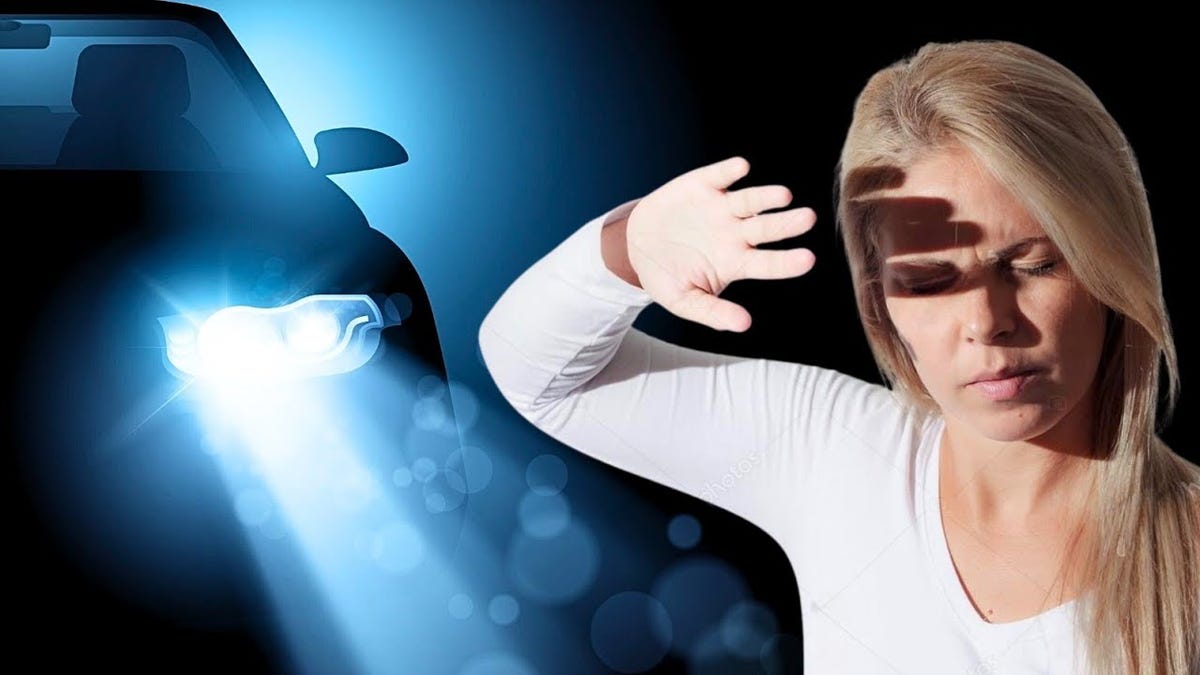If you feel like you’re constantly blinded while driving at night now, you’re not alone, and it’s not just because a bunch of truck bros ordered aftermarket LED headlights off Amazon that they installed themselves. There is certainly some of that, along with assholes driving with their brights on the whole time, but headlights really have gotten more blinding in recent years. The good news is, as the video below explains, there are a few things you can do to make night driving a little less miserable.
As Cory Boone, an optical engineer explains, you’re already at a disadvantage when you drive at night because your pupils dilate to let in more light. That’s good for being able to see better in the dark, but it also exacerbates any sight issues you might have such as nearsightedness or astigmatism. It also messes with your sense of focus. There’s also no denying the fact that high-riding vehicles such as trucks and large SUVs have their headlights mounted further from the ground, making them more likely to blind other drivers.
Part of the problem is also the headlights themselves. While older headlight designs cast a yellowish light, modern LED headlights are much more white or blue. Even if they’re technically no brighter than the old headlights, your eyes interpret white and blue light as brighter or harsher than yellow light. The shorter wavelength of those blue lights also scatters around inside your eyeballs as much as 16 times more than a longer wavelength color such as red. That’s part of why you see lines coming off of other drivers’ lights while you’re driving at night.
Ultimately, we need regulations to change to allow more advanced headlights that aren’t as blinding, but in the meantime, Boone says there are a couple of things you can do to try to minimize nighttime glare. The first is to wash your windshield frequently because dirt and other gunk on the windshield causes light to scatter even more than it would have otherwise. If you wear glasses, the same is true for keeping your lenses clean. You should also make sure your glasses have an anti-reflective coating on them, which costs more, but if it reduces glare, it’s probably worth it.
Another option is to try increasing the brightness of your dashboard lights. That should cause your pupils to constrict, which should somewhat improve your night vision. He also recommends taking supplements such as lutein and zeaxanthin to improve eye health.
One of the most effective actions you can potentially take might be the most annoying — If you use glasses or contacts, make sure you get your eyes checked on a yearly basis to ensure that your prescription is up to date. You might not feel like you need new glasses, but if Biden wasn’t president the last time you had an eye exam, your issues with night driving could potentially be improved with new lenses. Especially if you can get ones with the aforementioned anti-reflective coating on them.
Sadly, it’s unlikely that a clean windshield, new glasses and a slightly brighter dashboard will completely eliminate the glare from other people’s headlights, but at the very least you can try a few of these tips out and see if they help.







